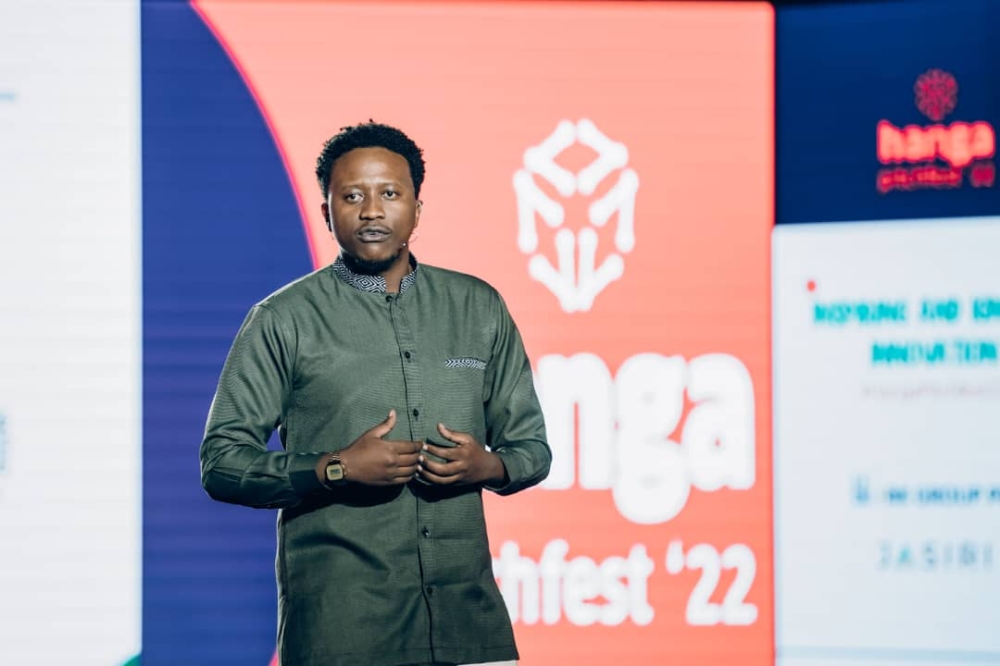

In 2021, Hervé Girihirwe started a pig farm in Gicumbi District, driven by the fact that he wanted to be an entrepreneur in a field he was passionate about – agriculture.
When the pigs bred, he struggled to cash in given that he didn’t have enough market information, and thus couldn’t get buyers for his livestock.
Girihirwe said that in late 2021, two men came to his farm and offered him Rwf 1700 per kilogram of pig meat, and since he craved selling, he settled on the price after some negotiations.
He says that when he followed up, he realised that the men would also call "actual buyers” who would pay them about Rwf 3000 per kilogram – something that annoyed Girihirwe, given that he was losing up to Rwf1300 on every kilogram of his pigs.
In trying to get a solution, Girihirwe joined Jasiri Talent Investor Program in July, while he met Leon Karekezi and they dug deep into the problem.


They conducted a three-month research in Rulindo, Gakenke, Musanze, Nyabihu and Rubavu districts and according to Girihirwe, they found out that the farmers were also facing the same challenge of accessing real market information, hence selling their produce at a low price.
"We found out that 93 per cent of farmers never sell directly to local markets,” narrates Girihirwe. "They sell to people who find them in their farms or on the side roads. We also found out that they were losing up to 55 per cent of the value of their produce. This value going to those people in between should be going to the farmers.”
Girihirwe and Karekezi started tailoring their solution to the issue and founded Mulika Farms, a startup with an aim of creating a transparent and reliable channel for every farmer to be able to sell their produce to all available local markets by cutting down the supply chains.
"We are making sure that we bring back the value that farmers used to lose,” explained Girihirwe, adding that as for now, they have set up a call center – a number that both the farmers and buyers can call to access their services.
Mulika Farms has a web app and field agents who live with the farmers on a regular basis.
"We register the farmers even when they are going to start planting,” said Girihirwe. "The farmers tell us when they plan to harvest and we enter that information into our system or they can do it themselves via our web app.
Then, on that particular day, we send our field agent to meet the farmer to assure the quality of the goods and grade them considering their appearance and weight, among other things.
That information plus the videos, pictures as well as the price of the product is received by the buyer on the market. When they accept to buy the product, they make transactions. We facilitate the farmer to come and sell to that particular buyer.”
Girihirwe noted that in January 2023, Mulika Farms plans to disseminate their mobile app which is expected to automate the process, allowing farmers and buyers to upload information by themselves regardless of where they are.
He declared that the buyers will also be able to source farmers and their produce while farmers will be able to identify the available markets. The two players will also transact with each other through the app via mobile money, according to Girihirwe.
"We’ll create a lot of jobs because, in every cell, there are going to be field agents,” he added.
On December 10, Mulika Farms won a fourth prize ($12,500) in Hanga PitchFest, second edition.
According to Girihirwe, being part of the initiative became the startup’s opportunity to talk about its solution in presence of people willing to listen and offer support.
He said it also sparked partnerships with fellow innovators as well as the already established firms, thus opening more doors.
Girihirwe added that the prize will help them set up and ready their platform, given that they want to impact between 10,000 to 20,000 farmers by the end of 2023 and set up a system that can sustain that. Currently, Mulika Farms works with around 500 farmers.


